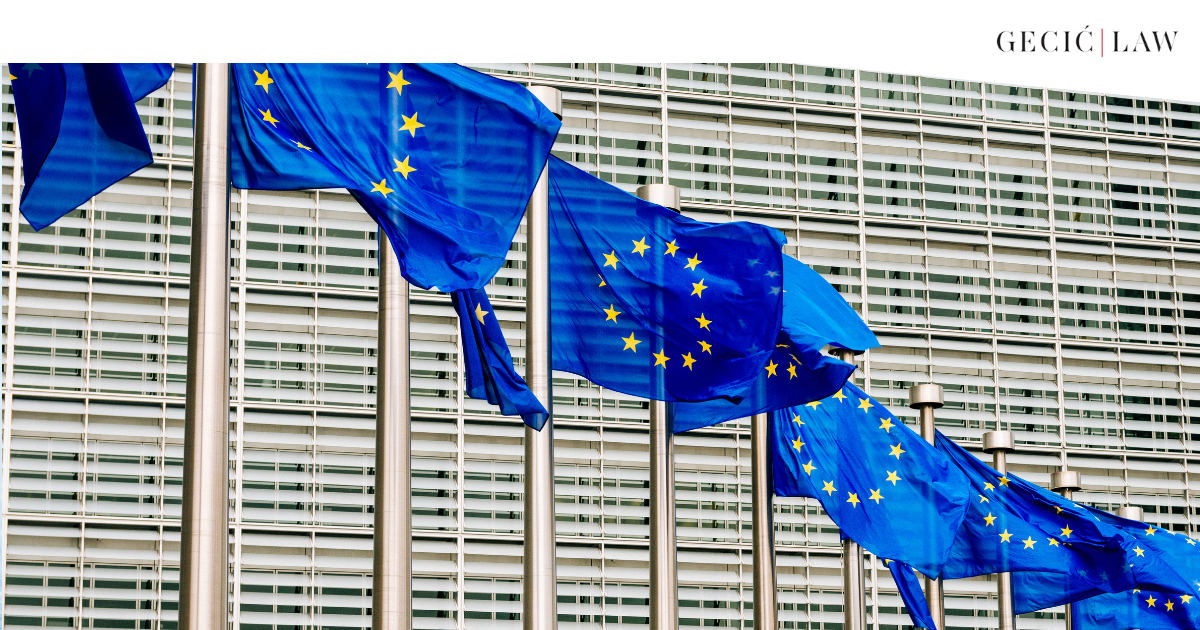

Despite rapid developments in technology and business, EU laws on e-commerce have not been updated for more than 20 years. To keep up with the digital revolution, the EU Parliament („EP“) adopted the Digital Markets Act (“DMA”) and the Digital Services Act (“DSA”). The DMA was adopted in July 2022 and it will start to apply at the beginning of 2023. As for the DSA, it is expected to be implemented in early 2024.
This act provides a framework that is tailored to the major influence of the largest digital companies, known as “gatekeepers” – undertakings that: a) have a significant impact on the EU internal market; b) provide a core platform service; c) enjoy an entrenched and durable position in their operations. This way the EU ensures a level playing field by establishing explicit rights and standards for gatekeepers, making them accountable for their acts, and allowing innovative businesses and consumers to benefit from digital opportunities. In practice, the DMA will primarily target the world’s most powerful corporations in the IT industry, commonly referred to as the “Big Five” (Google, Amazon, Apple, Meta, and Microsoft). The DMA seeks to prevent these firms from engaging in anti-competitive practices, such as the abuse of dominant position. This way the gatekeepers will have an obligation to conduct their businesses in a way that guarantees a fair and open market ready for innovations by everyone.
The European Commission (EC) will now have the ability to watch over big tech companies taking control of smaller businesses. This is intended to enable the EC to monitor market developments in the digital sector and to become aware of “killer acquisitions” – large corporations swallowing up hopeful start-ups with low revenue but a lot of potential. A single, unambiguous framework at the EU level will help small and medium-sized enterprises and start-ups grow and become more competitive.
For example, according to the DMA, Tech Giants can no longer rank their products or services higher than those of others (self-preferencing as in the famous “Google shopping case”). On the other hand, consumers will be able to easily unsubscribe from core platform services, delete apps that used to be mandatory, stop the installation of software by default alongside the operating system, and download alternative app stores, etc. The gatekeepers will also need to let corporate users access their advertising performance data on the platform, as well as allow consumers to communicate across multiple messaging applications. If a gatekeeper fails to comply with the new DMA rules, the EC can impose fines of up to 10% of its annual global income, or 20% in the case of repeated violations.
The DSA, also dubbed EU’s Digital Constitution, is a promising development in internet rights protection. The main objective of the DSA is to provide EU-based users with a more secure, reliable and trustworthy online environment. The Act’s key objective is to modernize the European Union’s E-Commerce Directive, which was adopted in 2000, to update the legal framework for illegal content on intermediaries.
Online services fall under the broad area of digital services and vary from basic web pages to online platforms and internet infrastructure services. The DSA will be applied by imposing due diligence obligations to providers of intermediary services. This includes internet service providers, social media services, online marketplaces, messaging services social networks, content-sharing platforms, app stores and online travel and accommodation platforms.
In the following paragraphs, we include a few of the new obligations expected to affect businesses and increase their accountability within the online sphere.
The EC will be the primary regulator responsible for the supervision, investigation, enforcement, and monitoring VLOPs, while other platforms will be supervised by the Member States. Similar to its enforcement powers under antitrust proceedings, the EC will have the ability to levy fines. If a corporation violates the law, it risks being fined up to 6% of its annual global revenues.
Authors: Nikola Ivković, Vasilije Bošković